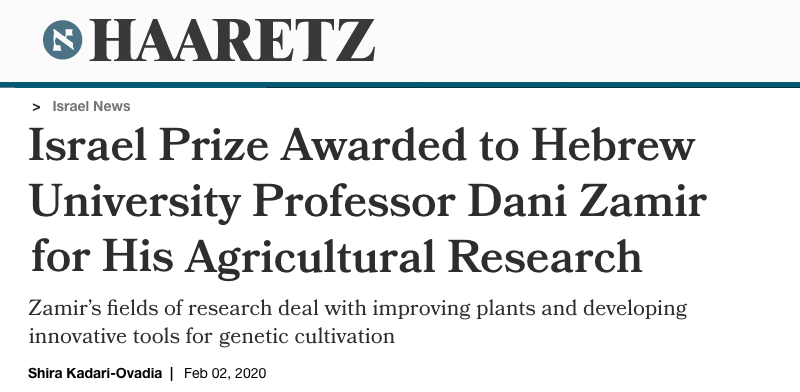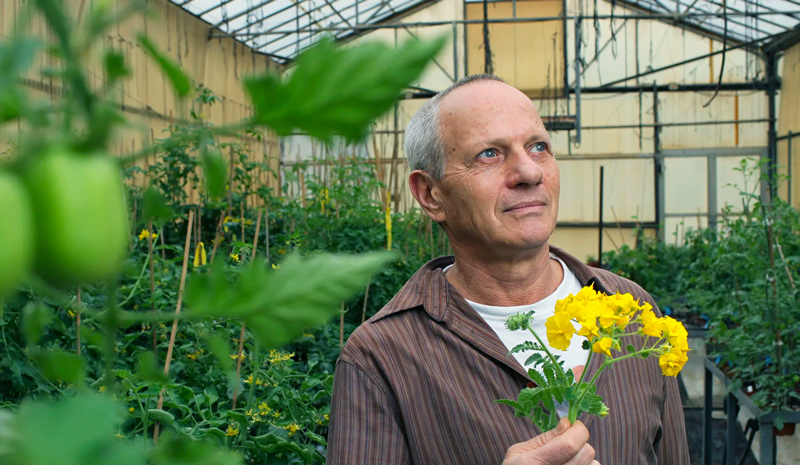Editor’s note: Prof. Dani Zamir is a member of the Tomato Genome Consortium, an international team of scientists from 14 countries that sequenced the tomato genome and shared it with the world in the journal Nature on May 31, 2012. The 34,075 genes sequenced represented a quantum leap in matching DNA sequences with specific traits such as flavor, aroma, colour, and yield. The entire sequence was posted online for download and browsing.


The Israel Prize for agricultural research and environmental science is being awarded to Prof. Dani Zamir, the Education Ministry announced Sunday. Zamir is professor emeritus in genetics at the Faculty of Agriculture, Food and Environment at Hebrew University.
Zamir’s fields of research deal with improving plants and developing innovative tools for genetic cultivation. For example, he developed a group of cultured tomatoes that contain a DNA string from species of wild tomatoes that make them resistant to dryness, salt and various diseases.
Twenty years ago he founded the company AB Seeds, which together with the university’s Yissum technology transfer company developed one of the leading species of tomatoes grown in California. Ten years ago, he and his student, Yaniv Semel, set up a company that applies computational methods to genetic cultivation. Zamir has won numerous research grants, including a particularly prestigious grant from the European Research Council.
The prize committee called Zamir a leader in his field “who is internationally recognized and involved in international cooperative ventures. He has contributed and continues to contribute to Israeli and global agriculture.”
For 35 years, Zamir taught the basic genetics course in the agriculture department, along with advanced courses. Hebrew University noted that “all the students in the agriculture department, from 1982 to today (except the years he was on sabbatical) studied genetics with Prof. Zamir.”
